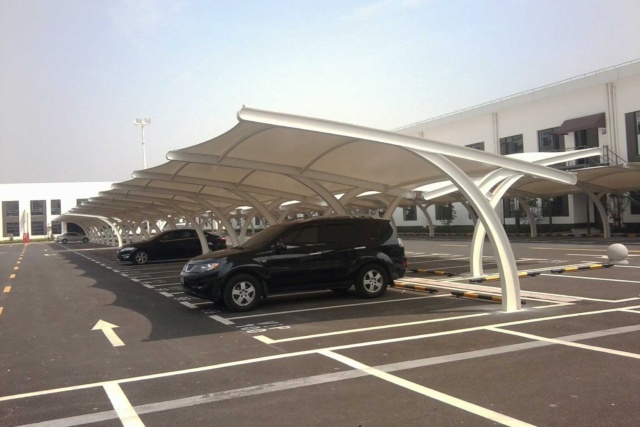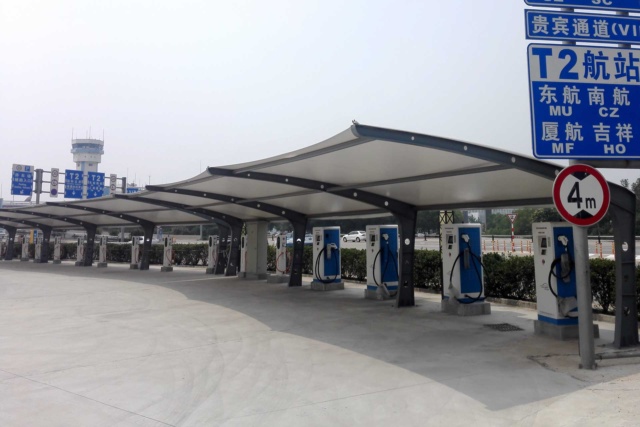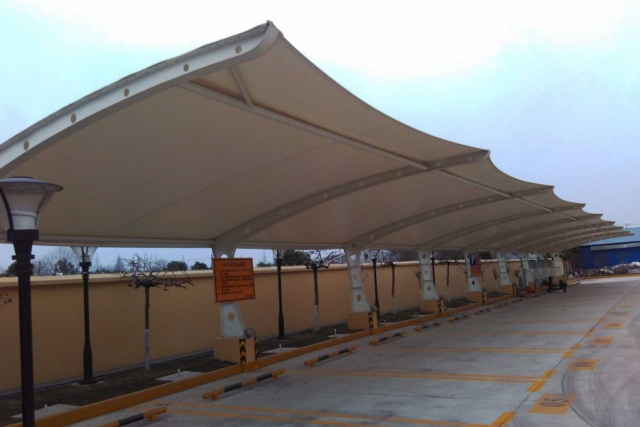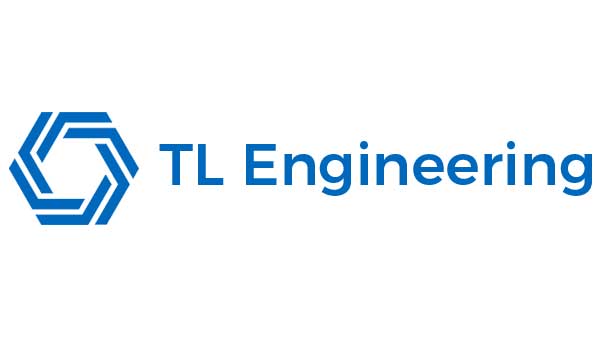With the popularity of electric vehicles, EV charging stations have gradually become an indispensable facility in cities. In order to provide car owners with a better charging experience, many charging stations have set up canopies or carports to protect vehicles and charging facilities from rain and sunlight. In these structures, membrane cloth processing technology has been widely used.

Membrane is a lightweight, flexible, weather-resistant and water-resistant material. It is usually made of Mylar or PVC-coated cloth. In car charging stations, membrane cloth is commonly used in carport and canopy coverings. And it can be used to create coverings of various shapes and sizes to suit different charging station layouts and needs.
One of the advantages of membrane cloth processing technology is that it can be customized according to actual needs. The membrane fabric structures can be custom-fabricated to the specific requirements of the charging station. It can ensure that they are in harmony with the other components of the station. The membrane cloth structure can also adopt different colors and patterns to conform to the overall design style of the charging station, thereby increasing the aesthetics of the station.

In addition to the advantages of appearance and design, the membrane cloth structure also has other advantages. For example, they are lighter and more flexible than traditional building materials and can be installed and maintained more easily. The membrane cloth structure can also provide better ventilation and light transmission. And it can thereby reduce the possibility of charging facilities and vehicles being heated.

However, fabric structures are usually more expensive to fabricate than traditional building materials. Membrane cloth processing technology requires a high level of technology and equipment requirements, so its production cost is relatively high. In addition, due to the high plasticity of the membrane cloth structure, more manual operations are required in the fabrication and installation process.

